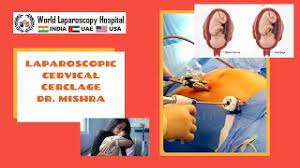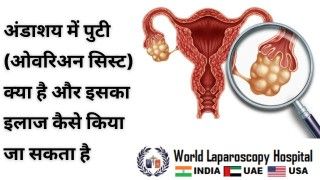Understanding Ovarian Cysts: Symptoms, Diagnosis, and Treatment Options
Add to
Share
1,675 views
Report
2 years ago
Description
Ovarian cysts are fluid-filled sacs that can develop on or within the ovaries. While most ovarian cysts are harmless and don't cause any symptoms, in some cases they can lead to complications and require medical attention. Symptoms of ovarian cysts can vary depending on the size and type of the cyst. Some women may experience pain or discomfort in the lower abdomen or pelvis, bloating, changes in menstrual periods, or pain during sexual intercourse. In some cases, ovarian cysts can rupture or twist, which can cause severe pain and other complications. To diagnose ovarian cysts, doctors may use a combination of physical exams, imaging tests such as ultrasounds or CT scans, and blood tests to check for hormone levels. Treatment options for ovarian cysts can also vary depending on the type and size of the cyst, as well as the symptoms they are causing. In cases where ovarian cysts are small and not causing any symptoms, doctors may recommend a watchful waiting approach to monitor the cysts over time. However, for larger cysts or those causing symptoms, treatment options can include medication to regulate hormones or surgery to remove the cysts. Surgical options for ovarian cysts can range from minimally invasive laparoscopic surgery to open surgery, depending on the size and location of the cysts. Laparoscopic surgery involves making small incisions in the abdomen to remove the cyst, while open surgery involves making a larger incision in the abdomen to access and remove the cyst. While ovarian cysts can be a cause for concern, the vast majority are harmless and don't require any treatment. However, it's important for women to be aware of the symptoms of ovarian cysts and to seek medical attention if they experience any symptoms or have concerns about their reproductive health. In conclusion, ovarian cysts are fluid-filled sacs that can develop on or within the ovaries. While most ovarian cysts are harmless and don't cause any symptoms, in some cases they can lead to complications and require medical attention. Treatment options for ovarian cysts can range from watchful waiting to medication or surgical intervention, depending on the type and size of the cyst, as well as the symptoms they are causing. Women who are experiencing symptoms of ovarian cysts should consult with their doctor to determine the appropriate course of treatment for their specific medical condition. It's important to note that while most ovarian cysts are benign, there is a risk of ovarian cancer in rare cases. Women who are postmenopausal or have a family history of ovarian cancer may have a higher risk of developing cancerous ovarian cysts and should be especially vigilant in monitoring their reproductive health. In addition to medical treatments for ovarian cysts, there are also lifestyle changes that can help reduce the risk of developing ovarian cysts. These include maintaining a healthy diet and exercise routine, quitting smoking, and using birth control pills to help regulate hormone levels. Regular gynecological exams can also help detect ovarian cysts early on, before they become problematic. Women should discuss their reproductive health with their healthcare provider and schedule regular check-ups to ensure they are taking proactive measures to prevent and manage ovarian cysts. Overall, while ovarian cysts can be a cause for concern, they are a relatively common occurrence and can be effectively managed with appropriate medical care. Women who are experiencing symptoms of ovarian cysts should consult with their doctor to determine the appropriate course of treatment for their specific medical condition. With early detection and timely intervention, women can take proactive steps to protect their reproductive health and prevent potential complications related to ovarian cysts. It's worth noting that some women may be at a higher risk of developing ovarian cysts, including those who have endometriosis or polycystic ovary syndrome (PCOS). These conditions can cause hormonal imbalances and affect the ovaries, increasing the risk of developing ovarian cysts. Women who have a history of ovarian cysts may also be at a higher risk of developing them in the future. In some cases, doctors may recommend preventive measures such as using birth control pills to help regulate hormone levels and reduce the risk of developing ovarian cysts. In rare cases, ovarian cysts can cause complications such as ovarian torsion, which occurs when the ovary twists around the cyst, cutting off blood flow and causing severe pain. Ovarian torsion requires emergency medical attention and may require surgery to correct. In conclusion, while ovarian cysts are a common occurrence in many women, it's important to be aware of the symptoms and to seek medical attention if any symptoms arise. Regular gynecological check-ups and discussions with a healthcare provider can help detect ovarian cysts early on and prevent potential complications. Women who are experiencing symptoms of ovarian cysts should consult with their doctor to determine the appropriate course of treatment for their specific medical condition. With timely intervention and appropriate medical care, women can protect their reproductive health and prevent potential complications related to ovarian cysts.
Similar Videos






